THE SYMPTOMS
FOR KIDNEY DISEASE
That You Should Not Ignore – and Why
THE SYMPTOMS
FOR KIDNEY DISEASE
That You Should Not Ignore – and Why
You may have the beginning symptoms for kidney disease and yet not realize it. Some of these symptoms are the ones you routinely ignore, ascribing it to the usual stress at the office or indigestion caused by poorly cooked cuisine. At the worst, you might even suspect unintentional food indigestion. But you start feeling a bit of alarm when you find it almost impossible to sleep every night, regardless of how many imaginary sheep you have counted.
Then the worst thing that can possibly happen happens. You notice that your eyes are puffy or that your skin is abnormally itchy, making you hesitate to meet important clients or just do an F2F with friends. Finally, that blood on your urine shocks you enough to call your doctor. After asking you about these unusual occurrences and your medical history, he asks you to further take a battery of medical exams.
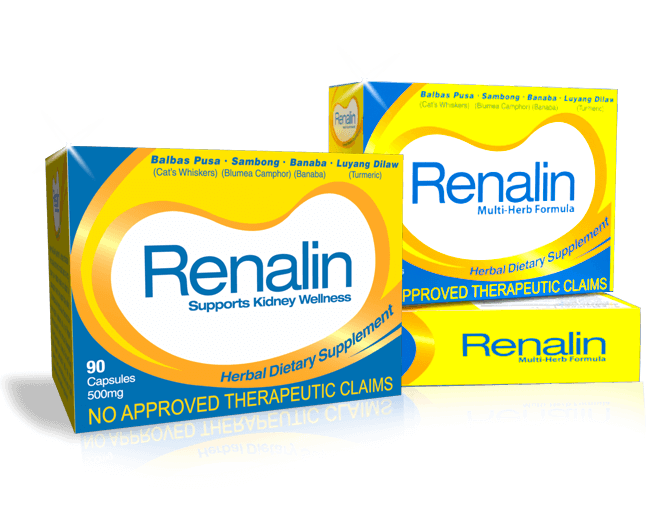
You may have the beginning symptoms for kidney disease and yet not realize it. Some of these symptoms are the ones you routinely ignore, ascribing it to the usual stress at the office or indigestion caused by poorly cooked cuisine. At the worst, you might even suspect unintentional food indigestion. But you start feeling a bit of alarm when you find it almost impossible to sleep every night, regardless of how many imaginary sheep you have counted.
Then the worst thing that can possibly happen happens. You notice that your eyes are puffy or that your skin is abnormally itchy, making you hesitate to meet important clients or just do an F2F with friends. Finally, that blood on your urine shocks you enough to call your doctor. After asking you about these unusual occurrences and your medical history, he asks you to further take a battery of medical exams.

types of kidney disease
types of
Kidney Disease
Finally, he gives you the diagnosis and the bad news: you already have kidney problems which can lead to an actual kidney disease. If you don’t correct your bad unhealthy habits or get treatment, then these symptoms of kidney disease might actually degenerate into an acute medical condition. The worst case scenario is kidney failure—and nobody, not your doctor, your family, your loved ones, nor you, want to get to that stage.
You might be familiar with the most common kidney diseases: kidney stones and urinary tract infection. An elder in your family might have had a stone surgically removed, or your hyperactive teen brother who keeps downing sugary drinks like there is no tomorrow had been diagnosed with urinary tract infection. Kidney stones develop when substances in the body that your system could not flush out concretize in your kidneys and harden into those hard lumps.
Urinary tract infections are usually caused by viruses or infections that invade your kidney systems where they have to be treated.The less known but no less dangerous kidney diseases may need more medical attention, and possibly a lifestyle change on your part. When fluids build up in your kidneys, they turn into small sacs or cysts that are hard to flush out and can damage your kidney functions. This medical condition is called polycystic kidney disease. Another illness, glomerulonephritis, develops when the small structures inside the kidney that are responsible for processing the flow of your bloodstream, also known as glomeruli, swell or are inflamed because of drugs or infection.
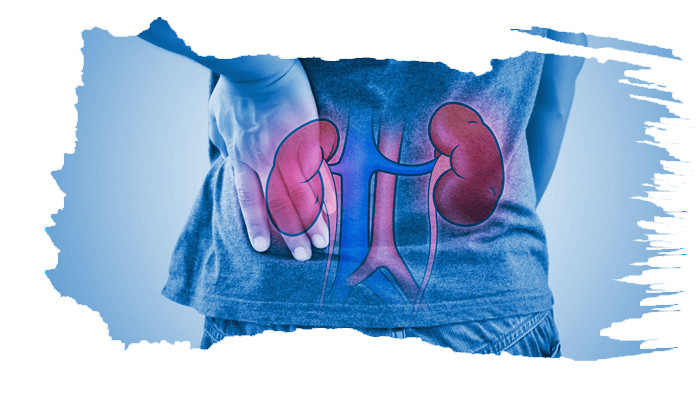
The one medical condition you want to avoid is chronic kidney disease which can last over a long time without improvement or healing. Worse, it can cause your body to deteriorate and can become fatal. Chronic kidney disease is caused by unmanaged high blood pressure which can relentlessly batter your glomeruli until they can no longer function properly. As a result, your kidneys will no longer be able to do their own roles: clean the blood that flows through them, remove and flush out your body waste, and maintain the balance of your fluids. Nor will they be able to filter the toxins that enter your blood.
In these extreme cases, the patient with chronic kidney disease may require a kidney transplant to replace his or her non-functioning kidney. Another option is to undergo dialysis which regulates the patient’s fluids and extracts his waste because his body can no longer do so on its own.
For patients who have reached these stages, chances are they noticed the symptoms of kidney disease far too late to do any preventive treatment.
5 SYMPTOPMS of kidney disease
That’s why it is important that, regardless of your age, occupation, social status, or health condition, you had better pay attention to the following top five symptoms of kidney disease. Having at least four of these merit a trip to the doctor. Have yourself checked before things get worse. An ounce of prevention is still worth a pound of cure, especially when it comes to your kidneys.
Unusual fatigue or tiredness
Nothing you do seems to bring back that high level of energy that you were used to. You feel tired in the morning and at night you go back to bed. You feel weak just thinking of an activity you have to do, and you have a hard time concentrating at work. Despite taking a few vacation days away from the office which you spent just sleeping in, you can’t shrug off that cloak of weakness that has descended on you. It’s like your body has set itself on a perpetual setting of low energy that can’t be changed or adjusted.
Your inability to focus is one give away that you might have developed a kidney disease. Kidneys are responsible for creating a hormone that triggers your body into creating red blood cells. The fewer red blood cells you have, the less oxygen gets into your brain, the duller your mental faculties get.
The perpetual physical fatigue that has descended on you like a big heavy blanket could be caused by the huge amount of toxins in your blood. This means that your kidneys are having a hard time removing them along with the other wastes that you have to expel from your body.
Poor sleep
Aside from being a sign, sleeplessness can also be one of the causes of kidney diseases. It is like a chicken-and-egg scenario. Poor sleep can prevent your body get the amount of oxygen it needs to rest and recover when it depowers in the evening. At the same time, all that tossing and turning restlessly in your bed can indicate that toxins have also overwhelmed your bloodstream.
That alarmingly huge amount of waste can only mean one thing: your kidneys have not been able to do their job properly of removing them through your urine. Their failure can indicate they could have been damaged, and therefore at the very least means that you urgently need to undergo a medical exam.
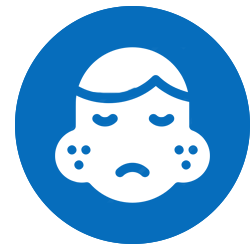
Unnaturally Puffy Face
Losing your good looks is not the only thing that you have to worry about if you start noticing that your face begins to swell. You had better take it seriously once the inflammation spreads to your feet and ankles. This means that your kidneys are damaged or malfunctioning because they can’t remove the sodium from your body. As a result, this fluid piles up in your body and, without any outlet of release, it accumulates in your cheeks and feet.
If your eyes start to swell, too, then that means that protein is leaking out of your urine and is no longer under the kidney’s management system. Puffiness in many parts of your body counts among the symptoms of kidney disease
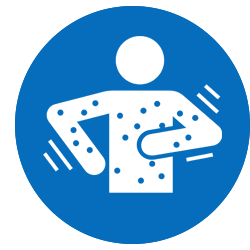
Itchy Skin
Aside from removing waste and filtering your blood, kidneys also take care of maintaining the balance of minerals and nutrients in your body. Once they falter on the job and imbalance happens, you become at risk for bone and mineral diseases. An always-dry skin that you feel like you always have to scratch can mean that you already have that imbalance, as well as weak and damaged kidneys.
Skin itchiness can also be caused by a rash that breaks out of your body due to toxins that are already clogging up your blood systems. Again, this indicates that your kidneys are not up to speed and need to be checked.
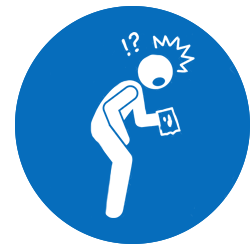
Urine in Your Blood
Among the symptoms of kidney disease, this is probably the one that will compel you to call your doctor ASAP. Even as laymen who are not medically trained, we instinctively know that something is wrong—as in majorly wrong—once we see that red liquid mixing with our pee on the toilet bowl.
Remember that it is our kidneys’ jobs to convert waste in our body into urine we can pee out. They are also designed to keep our blood cells intact, healthy, and functioning within our systems. Blood leaking out means that the kidneys are damaged. Blood on the urine can also be a sign that you might have developed a tumor, a cyst, or a stone in your kidneys.
The Causes of Kidney Disease
Damage to your kidneys can happen in various ways. First, they can experience trauma directly such as an accident that leads to blood loss. Second, dehydration and the breakdown of muscle tissues, for example, can lead to excess protein invading the bloodstream, affecting the kidney’s ability to filter your blood cells. Third, because of tumors, infections, and an enlarged prostrate, your kidneys cannot expunge your body’s wastes through urination.
It is important to know and understand these causes of kidney disease to fully appreciate the preventive measures that we are recommending.
Healthy lifestyle
to Prevent the Onset of Kidney Conditions

1.First and foremost is to avoid the so-called kidney disease diet or unhealthy eating that can lead to the growth of kidney stones or damaged kidneys.
These include a lot of sugar with their mouth-watering desserts and seemingly refreshing sodas, just to give a few examples. It can also be found in breakfast cereals and white bread. Too much sugar can increase your blood pressure levels, and hypertension is the next step to developing a kidney disease.
Processed foods are part of this high-risk diet as they are composed of significant amounts of phosphorus and sodium which are both harmful to kidneys. Sodium, in particular, is also a factor that can raise your blood sugar.

- Take vitamin supplements that will keep your kidneys healthy.There are herbal dietary food supplements that make sure they are free from toxins, sodium, and other unhealthy substances. Traditional Philippine plants like the Cat’s Whiskers Plant and Blumea Balsamifera can help dissolve kidney stones.

- Manage your blood pressure and blood sugar. We’ve discussed at length the connection between your blood pressure and your kidney. Hypertension is one risk factor for a kidney condition. Thus it makes sense to keep an eye out on your blood pressure and see to it that it is always on the healthy level of 120/80.
Managing your blood sugar to healthy levels will keep away diabetes, which is just one step away from hypertension. Avoid eating a lot of sugary foods, as discussed above. Glucose, or the sugar in your body, can swamp your body cells — and if it is rejected, then your kidneys will have to work double time to clean your bloodstream. An overworked kidney can result to a damaged kidney.
If you do have diabetes and/or hypertension, then all the more reason to keep checking your sugar and blood pressure levels. Leave them uncontrolled—and you might be checking yourself for symptoms of kidney disease.

4. Drink enough water every day. There simply is no replacement for this. The average amount of water an adult should drink is from 1.5 to 2 liters a day. Some resources translate hat to eight to ten glasses of water a day. This precious liquid keeps the blood flowing to your kidneys and prevents dehydration. It also flushes out the sodium and other toxins from those organs.
If you want to avoid developing symptoms of kidney disease, hydrate.
Avoiding Symptoms
of Kidney Disease
Avoiding Symptoms
of Kidney Disease
Kidneys are important organs that filter our blood, make sure we have the right amount of nutrients, and daily eliminate the toxins and other impurities that can make us sick. We can avoid developing these symptoms of kidney disease through simple but effective habits like a diet change, blood pressure and sugar level management, nutritional supplement intake, and constant hydration.
We would love to show and tell you more. If you have questions about kidney conditions, or want to know more about keeping them healthy

